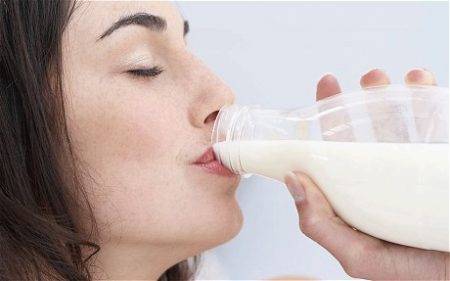 A new 12-year study by a Polish University presented at the annual congress of the European Society of Cardiology, involving 24,474 adults shows that consuming dairy products, particularly cheese and yogurt, will reduce the chance of death by two to eight percent.
A new 12-year study by a Polish University presented at the annual congress of the European Society of Cardiology, involving 24,474 adults shows that consuming dairy products, particularly cheese and yogurt, will reduce the chance of death by two to eight percent.
The study suggests that the current advice to limit dairy intake should be reconsidered, especially for those who consume yogurt and cheese as opposed to milk.
“The consumption of dairy products has long been thought to increase the risk of death, particularly from coronary heart disease, cerebrovascular disease and cancer, because of dairy’s relatively high levels of saturated fat,” the society said in a news release. “Yet evidence for any such link, especially among U.S. adults, is inconsistent.”
Whole milk still appears to increase the risk of heart disease, although the study authors did not quantify how great the increase was. But most other dairy products, especially cheese and yogurt, were found to protect against both total mortality — death from any cause — and mortality from cerebrovascular causes.
Dr. Maciej Banach of the Medical University of Lodz, Poland, who led the study, and his co-researchers examined data from the 1999–2010 National Health and Nutrition Examination Survey, conducted by the Centers for Disease Control and Prevention. The average age of the 24,474 adult study participants was 47.6 years old, and 51.4 percent were women. During the follow-up period of over six years, 3,520 deaths were recorded, including 827 from cancer, 709 from cardiac causes and 228 from cerebrovascular disease.
Researchers found that those study subjects who consumed dairy of any kind had a two percent lower risk of death of any kind. And if they consumed a dairy diet consisting mostly of cheese their chance of death was 8% lower. In addition, the risk of death from stroke was 4% lower with total dairy consumption, and 7% lower with just milk consumption.
However, the risk of heart disease was increased with higher milk consumption, which the study’s authors from the Medical University of Lodz, Poland, said needs further study.
“This was a study of an eating pattern — which is really what we need to be focusing on — eating patterns as opposed to individual foods or food groups,” Beth Kitchin, an assistant professor of nutrition science at the University of Alabama at Birmingham who was not affiliated with the study, said in an email. “Dairy foods like milk, cheese, yogurt and kefir are great sources of high-quality protein, calcium and phosphorus. Milk and yogurt are good sources of potassium — which is tough to get enough of in our diets. Diets high in potassium help lower blood pressure. Unless you’re allergic to milk, there really aren’t downsides — unless you eat so much of them that you gain weight.”
Dairy products are major sources of saturated fat and contribute to approximately one-fifth of total saturated fat intake in the U.S. diet. Eating saturated fats increases bad cholesterol levels, called LDL, and may induce chronic inflammation, leading to an increase in cardiovascular disease, but specific fatty acids in dairy have been shown to lower heart disease risk in recent studies.
In a study published in December 2014 in the American Journal of Clinical Nutrition, researchers from Tufts and Harvard universities found that people with very high dairy consumption had a significantly lower risk of diabetes, a major risk factor for developing heart disease, compared with people who had a very low dairy consumption.
While cheese and other dairy products are being reconsidered as heart-healthy add-ons, they are far from lifesaving, and most medical professionals still consider a balanced diet the healthiest option.
“I recommend that people limit whole-milk dairy products and cheese portions,” said Dr. Holly Lofton, director of the weight management program at NYU Langone Health. “Cheese can be quite satisfying and filling for patients but it is also often eaten in mindless settings like dinner parties. This can lead to weight gain, which increases cardiovascular risk.”









